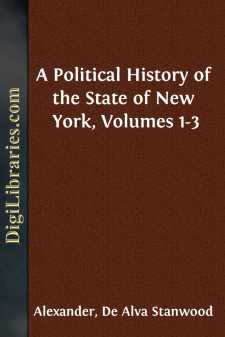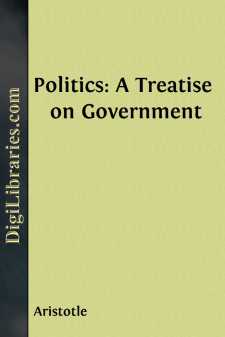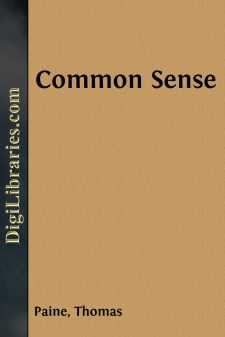Political Science
Political Science Books
Sort by:
by:
James Hannay
CHAPTER I The contest for responsible government which was carried on in all the provinces of British North America for so many years resembled in some of its features a modern battle, where the field of operations is so wide that it is impossible for a general to cover it with his eye or to keep control of all the movements of his subordinates. In such a case, everything depends on the ability of the...
more...
PREFACE The preparation of this work was suggested to the author by the difficulty he experienced in obtaining an accurate knowledge of the movements of political parties and their leaders in the Empire State. "After living a dozen years in New York," wrote Oliver Wolcott, who had been one of Washington's Cabinet, and was afterwards governor of Connecticut, "I don't pretend to...
more...
by:
John Arbuthnot
This is the book which fixed the name and character of John Bull on the English people. Though in one part of the story he is thin and long nosed, as a result of trouble, generally he is suggested to us as "ruddy and plump, with a pair of cheeks like a trumpeter," an honest tradesman, simple and straightforward, easily cheated; but when he takes his affairs into his own hands, acting with good...
more...
by:
Aristotle
The Politics of Aristotle is the second part of a treatise of which the Ethics is the first part. It looks back to the Ethics as the Ethics looks forward to the Politics. For Aristotle did not separate, as we are inclined to do, the spheres of the statesman and the moralist. In the Ethics he has described the character necessary for the good life, but that life is for him essentially to be lived in...
more...
by:
John Locke
PREFACE Reader, thou hast here the beginning and end of a discourse concerning government; what fate has otherwise disposed of the papers that should have filled up the middle, and were more than all the rest, it is not worth while to tell thee. These, which remain, I hope are sufficient to establish the throne of our great restorer, our present King William; to make good his title, in the consent of...
more...
PREFACE It is a matter of common observation that during the opening years of the twentieth century there has been, in many portions of the civilized world, a substantial quickening of interest in the principles and problems of human government. The United States is happily among those countries in which the phenomenon can be observed, and we have witnessed in recent times not only the organization of...
more...
by:
Thomas Paine
SOME writers have so confounded society with government, as to leave little or no distinction between them; whereas they are not only different, but have different origins. Society is produced by our wants, and government by wickedness; the former promotes our happiness POSITIVELY by uniting our affections, the latter NEGATIVELY by restraining our vices. The one encourages intercourse, the other...
more...
by:
Benjamin Jowett
INTRODUCTION AND ANALYSIS. The genuineness of the Laws is sufficiently proved (1) by more than twenty citations of them in the writings of Aristotle, who was residing at Athens during the last twenty years of the life of Plato, and who, having left it after his death (B.C. 347), returned thither twelve years later (B.C. 335); (2) by the allusion of Isocrates (Oratio ad Philippum missa, p.84: To men...
more...
CHAPTER I — HOW MANY KINDS OF PRINCIPALITIES THERE ARE, AND BY WHAT MEANS THEY ARE ACQUIRED All states, all powers, that have held and hold rule over men have been and are either republics or principalities. Principalities are either hereditary, in which the family has been long established; or they are new. The new are either entirely new, as was Milan to Francesco Sforza, or they are, as it were,...
more...
CHAPTER I INTRODUCTION The eighteenth century may be said to begin with the Revolution of 1688; for, with its completion, the dogma of Divine Right disappeared for ever from English politics. Its place was but partially filled until Hume and Burke supplied the outlines of a new philosophy. For the observer of this age can hardly fail, as he notes its relative barrenness of abstract ideas, to be...
more...











